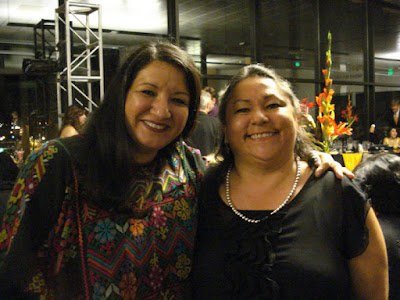Sandra Cisneros’ memoir: A House of My Own: Stories From My Life
Juliana Aragón Fatula’s Review of Sandra
Cisneros’ memoir,
A House of my Own: Stories
from my Life
release and ordered two copies. One for me and the other for my sister, Aimée.
We would read it together and discuss it via Skype. The book arrived and I
devoured it. I was supposed to wait for my sister to catch up; but I couldn’t
wait to read more of Sandra’s story.
wanted to return. In all I made sixteen
tabs. I was so absorbed in the reading that I stopped marking and began, you
know, travelling with Sandra to all of those magical houses she lived in around
the world.
“True, I have no biological children, but I have, as it turns out, become a
mother nonetheless. I have over one hundred creative writers I mother directly
and indirectly through my two foundations, The Macondo Foundation and the
Alfredo Cisneros del Moral Foundation, along with thousands of reader of all
ages I work with through my public engagements in libraries and schools across
the country.”
privacy, “A front porch is supposed to be for waving at neighbors and chatting.
But for a writer it’s when you look like you’re not doing anything that you’re
actually writing: people who don’t write, don’t understand this.”
and truths, “…as if with age we come closer to the bull’s eye of being admitted
the truth. The science writer, Jonah Lehrer, claims we never revisit a memory
without altering it. If this is true, then perhaps all memoir is a chance of
storytelling, and every story brings us closer to revealing ourselves to
ourselves.”
of my favorite chapters are: Tenemos
Layaway, or How I Became an Art Collector and The Author Responds to Your Letter Requesting my Book Be Banned from
the School Library. Her sense of humor is evident in everything she does.
She is a trickster. A chingona. A badass. She describes her writing days, “For
work, on the days I go barefoot, when I sometimes forget to comb my hair, when
I’m anxious to forget my body and need to be comfortable, without any
underclothes binding or biting me, I like my everyday huipiles de manta, of
sack cloth. The one’s I can stain with coffee or a taco and I won’t grieve.” She
brings us into her house and spends time with us, like a dear friend. The kind
you can be yourself around. She’s real. Sandra’s humor and Spanglish bring fond
memories of growing up in a bilingual home, “Si los gatitos nacer en el horno,
son gatitos o son bizcochos. Just because the kittens are born in the oven
doesn’t mean they’re biscuits.”
Dermôut was a mother after all, and then a grandmother. By the time she was
done with the ten thousand distractions of being both, she finally had a little
time of her own and could profess her love of all things Javanese by taking up
her pen. Dermôut wrote two novels. Only two. But one book exquisitely written
is worth five not worth remembering.”
that grew up wanting a house of her own. She wrote House on Mango Street and went on to win numerous awards and
accolades. She generously shares her talent with other writers through her Macondo
Writers Foundation. The mission statement: “A community of poets, novelists,
journalists, performance artists, and creative writers of all genres whose work
is socially engaged. Their work and talents are part of a larger task of
community building and non-violent social change and their commitment to work
for underserved communities through their writing.” Read
her memoir: A House of my Own: Stories from my Life. Buy two copies and read it with a friend.


